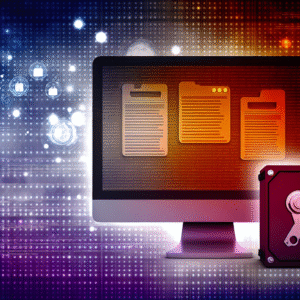In the rapidly evolving digital landscape of 2025, Nigerian SMEs (Small and Medium Enterprises) are more connected than ever. While this presents numerous opportunities for growth, it also opens the doors to a vast array of security threats that can jeopardize your hard-earned business. As an SME in Nigeria, understanding these threats can help you protect your online presence, maintain customer trust, and, ultimately, ensure your business thrives. Here’s a rundown of the top 10 website security threats you should be aware of this year.
1. Phishing Attacks
Phishing remains a popular method for cybercriminals. In 2025, it has evolved into well-crafted schemes that target SMEs specifically. Cybercriminals impersonate legitimate organizations, tricking employees or customers into revealing sensitive data. Regular training for staff to recognize these deceptive tactics is essential.
2. Ransomware
Ransomware attacks continue to grow in frequency and sophistication. Hackers encrypt your data and demand payment for its release. For SMEs, which may struggle to recover lost data, this can be devastating. It’s vital to have regular backups and robust security measures in place to fend off these threats.
3. Data Breaches
As data regulations tighten, the consequences of a data breach can be severe, both legally and financially. Cyber criminals often target SMEs due to their perceived lack of robust security measures. It’s crucial to implement strong access controls and encryption practices to protect sensitive customer information.
4. DDoS Attacks
Distributed Denial-of-Service (DDoS) attacks overload web servers, causing your website to go down for hours—or worse. While these attacks may seem more suited to larger corporations, SMEs are increasingly becoming targets. Investing in DDoS protection and ensuring your hosting provider has safeguards in place is a smart move.
5. Weak Passwords
It might sound cliché, but weak passwords are still one of the most common vulnerabilities. Many users still rely on easily guessable passwords. Encourage your team to utilize password managers and implement multi-factor authentication (MFA) to bolster security.
6. Unpatched Software
Software updates may seem tedious, but outdated software is an open invitation for cybercriminals. In 2025, SMEs must remain vigilant about keeping all software, including plugins and systems, up-to-date to minimize vulnerabilities.
7. Supply Chain Attacks
These attacks occur when cybercriminals target a less secure element in your supply chain to gain access to your business. By conducting thorough due diligence and ensuring your vendors adhere to security best practices, you can reduce these risks significantly.
8. Social Engineering
It’s not all about technology; sometimes, the biggest threat comes from human factors. Social engineering involves manipulating people into divulging information. Whether through phone calls or in-person interactions, ensuring that your staff is trained to recognize and report suspicious behavior is critical.
9. Malware
Malware can sneak onto your systems through email attachments or compromised websites, putting your data at risk. Use reputable antivirus software, and conduct regular scans to catch any malicious software before it causes havoc.
10. Inadequate Cybersecurity Policies
Many SMEs operate without a formal cybersecurity policy. This absence often leads to inconsistent practices that expose your business to risk. Establish clear guidelines regarding data management, incident response, and employee training to create a robust security framework.
FAQs
What should I do if I suspect a security breach?
First, secure your systems by disconnecting compromised devices from the network. Inform your IT department or a cybersecurity expert immediately to assess the damage. Document everything and consider informing affected customers if their data is involved.
How can I ensure my website is secure?
Regularly update your software, implement strong password policies, back up your data, and utilize encryption. Engaging a managed security service can also help simplify the process.
What are the costs associated with a data breach?
Costs can vary widely but can include legal fees, regulatory fines, loss of customer trust, and potential business losses. These can range from hundreds of thousands to millions of Naira, depending on the severity and size of your business.
Is cybersecurity training necessary for all employees?
Absolutely! Every employee plays a role in maintaining security. Regular training can create a culture of awareness and vigilance against potential threats.
How can Nikenga Web Services help my business?
Nikenga Web Services offers comprehensive managed hosting, marketing, and development solutions specifically tailored for Nigerian SMEs. Our expertise can help you safeguard your business from online security threats while enhancing your online presence.
As we step further into 2025, the landscape of website security will continue to change. It’s imperative for Nigerian SMEs to stay informed and proactive about these threats. By recognizing vulnerabilities and implementing solid security practices, you can secure your digital assets and focus on what you do best—growing your business. Don’t wait for a breach; take action now! Explore how Nikenga Web Services can empower your business with managed hosting, top-notch security, marketing, and web development solutions. Protect your future—contact us today!






